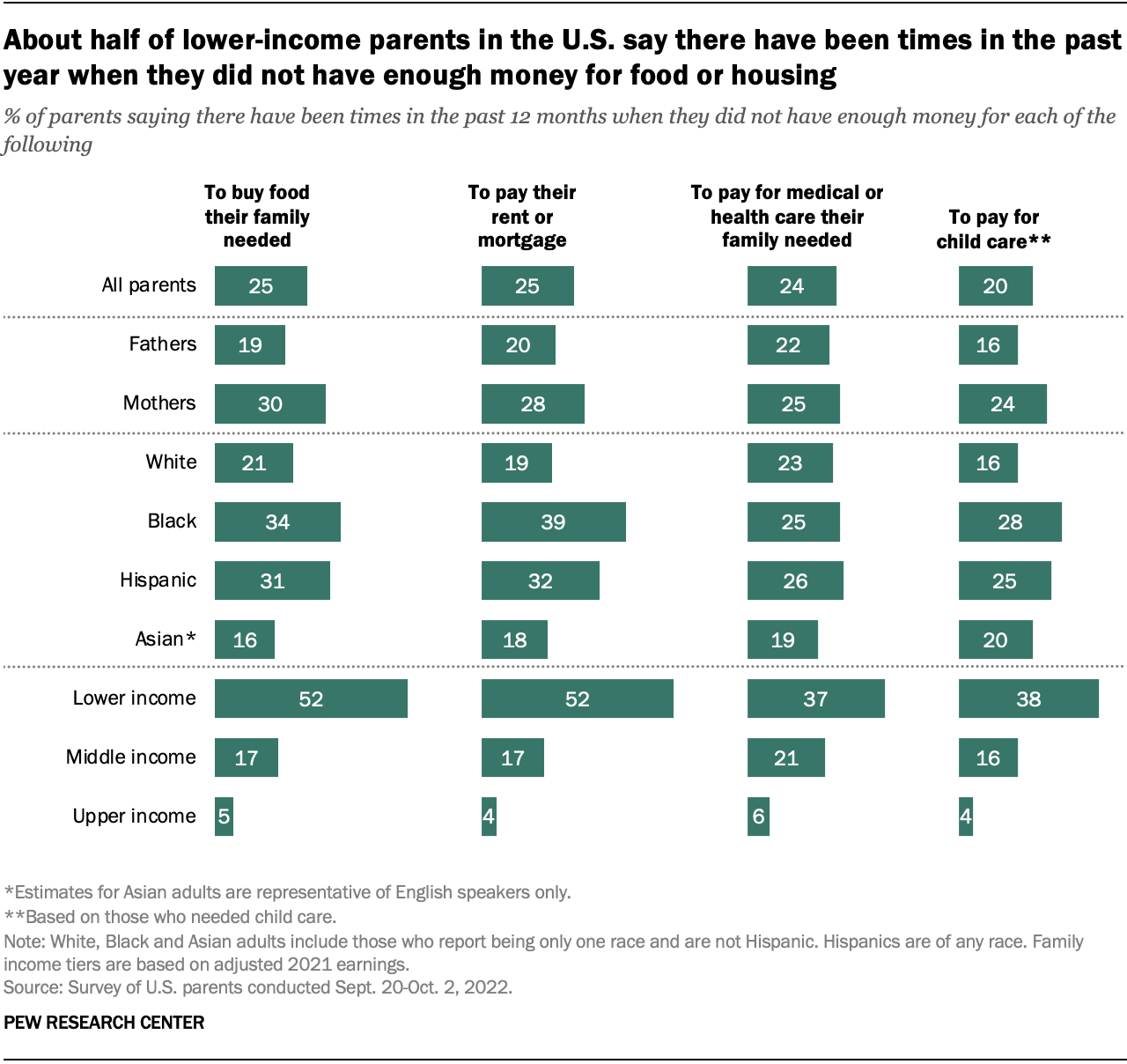Why can’t full time students live in low income housing? Full-time students cannot live in low-income housing because they are typically not eligible due to income restrictions. Low-income housing programs are specifically designed to assist individuals with limited financial resources who are not engaged in full-time academic pursuits.
As a result, students may not meet the income eligibility criteria set by these programs. Additionally, the focus of low-income housing is to support individuals facing financial hardship outside of educational expenses, making it difficult for full-time students to qualify for such housing assistance.
However, there may be alternative housing options available specifically tailored to the needs of students, such as on-campus housing or student housing programs.

Credit: www.latimes.com
Challenges Of Full-time Students
The challenges faced by full-time students often include the inability to afford low-income housing due to limited financial resources. This dilemma greatly impacts their ability to focus on their studies, as students require stable and affordable living conditions to thrive academically.
Consequently, the lack of accessible low-income housing options poses a significant barrier for full-time students striving to pursue their educational goals.
Financial Constraints
Full-time students face financial constraints that limit their ability to live in low-income housing.
Time Commitments
The demanding academic schedule of full-time students affects their availability to access low-income housing options.
Full-time students experience challenges in securing affordable housing due to their financial limitations.
Financial Constraints
The cost of tuition, books, and supplies can make it difficult for full-time students to afford housing.
Time Commitments
Juggling classes, assignments, and extracurricular activities leave full-time students with limited time to search for housing.
Eligibility Criteria For Low-income Housing
Understanding the eligibility criteria for low-income housing is essential for full-time students seeking affordable living options. This can be challenging since there are restrictions in place to ensure that those who truly need low-income housing can access it. The criteria typically involves income restrictions and household composition requirements.
Income Restrictions
Full-time students often face limitations when it comes to qualifying for low-income housing due to income restrictions. They are usually required to meet specific income thresholds set by the housing authorities in order to be eligible for such housing assistance.
Household Composition Requirements
Another factor that can impact a full-time student’s ability to live in low-income housing is the household composition requirements. Housing programs may have rules regarding who can reside together in the same unit, which can be a barrier for students living with roommates or family members.
Full-time Student Restrictions
Full-time student restrictions can be a hurdle for individuals seeking low-income housing assistance. Many housing programs impose regulations that prevent full-time students from qualifying for benefits, creating limitations on their housing options and financial resources.
Impact On Household Income
Full-time student restrictions can significantly impact household income, as it limits the opportunities for students to receive housing assistance based on their enrollment status. When students are ineligible for low-income housing programs, it can strain their financial resources and lead to difficulties in affording suitable housing options.
Limitation On Housing Choices
Full-time student restrictions impose a limitation on housing choices, constraining students from accessing affordable housing options. As a result, students may face challenges in finding suitable accommodation that aligns with their financial constraints, hindering their ability to secure stable housing.

Credit: www.pewresearch.org
Alternative Housing Options
Full-time students are not eligible for low-income housing due to income requirements. Alternative housing options for students include dormitories, room sharing, or living with family. Restrictions aim to allocate limited resources to those in greater housing need.
Introduction: Alternative Housing Options
While full-time students may not be eligible for low-income housing, there are several alternative options available that can provide affordable and suitable living arrangements. These alternatives include on-campus housing and private rentals with guarantors. Let’s explore each of these options in more detail.
On-campus Housing
On-campus housing is a great alternative for full-time students who are unable to secure low-income housing. Many educational institutions offer affordable dormitories or apartments specifically designed for students. These accommodations are conveniently located, providing easy access to campus facilities and activities.
On-campus housing offers numerous benefits:
- Affordability: On-campus housing options are often cheaper compared to private rentals in the surrounding areas.
- Convenience: Living on campus eliminates the need for long daily commutes, saving time and transportation costs.
- Community: On-campus housing fosters a sense of community among students, allowing for connections and friendships to flourish.
- Resources: Students have access to various amenities, such as laundry facilities, study areas, and recreational spaces.
Private Rentals With Guarantors
If on-campus housing is not available or preferred, students can explore private rentals with guarantors as an alternative. In this arrangement, a guarantor is a person who agrees to be responsible for the lease payments in the event that the student cannot fulfill their obligations.
Private rentals with guarantors have certain advantages:
- Flexibility: Students have the freedom to choose their preferred location and living arrangements.
- Privacy: Private rentals offer a greater level of privacy compared to on-campus housing.
- Independence: Renting a private property allows students to experience independent living, preparing them for life beyond campus.
- Customization: Students can personalize their living space according to their preferences and needs.
It is important for students to carefully consider the financial commitment and responsibility associated with private rentals. They should also ensure that the rental agreement, including the guarantor’s role, is clearly outlined and understood.
Advocating For Change
Full-time students face barriers to low-income housing due to strict eligibility criteria. Advocating for change in policies can facilitate more inclusive housing options for students, ensuring a better quality of life while pursuing education. Addressing this issue can foster a more equitable and accessible living situation for students struggling with housing affordability.
Policy Reforms
It is time for policy reforms that address the critical issue of full-time students being unable to access low-income housing. By implementing changes in our housing policy, we can ensure that students, who often face financial challenges, have a safe and affordable place to live.
These policy reforms should focus on:
- Recognizing the unique financial burden that full-time students face
- Providing designated low-income housing options for students
- Revising eligibility criteria to allow students to qualify for low-income housing assistance
Collaboration With Educational Institutions
To truly address the issue at its core, collaboration between housing authorities and educational institutions is essential. By forming partnerships with colleges, universities, and other educational establishments, we can create a support system that accommodates students’ housing needs.
This collaboration entails:
- Establishing a liaison office within educational institutions to guide students on housing options
- Developing joint programs to assist students with housing applications and finding suitable accommodations
- Offering financial assistance specifically tailored to students’ housing needs
In addition, educational institutions can play a role in advocating for their students’ rights and raising awareness about the challenges faced by full-time students in accessing affordable housing. By actively engaging in discussions with housing authorities and policymakers, educational institutions can amplify the voices of their students and push for meaningful change.

Credit: www.facebook.com
Frequently Asked Questions For Why Can’t Full Time Students Live In Low Income Housing
Why Can’t Full-time Students Live In Low-income Housing?
Full-time students are generally excluded from living in low-income housing due to eligibility requirements set by housing programs. These programs are designed to assist low-income individuals and families who are not enrolled in full-time education. This ensures that the limited housing resources are allocated to those who have the greatest need.
Conclusion
The regulations barring full-time students from low-income housing pose a significant challenge. By addressing the limitations and advocating for potential solutions, we can work towards a more inclusive housing system. It’s crucial to continue the conversation and explore alternative measures that support students in pursuing their education while living in affordable housing.
Pingback: Revolutionize Education: Technology for the Classroom | Info Interact
Comments are closed.